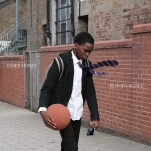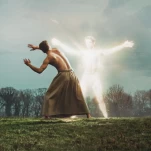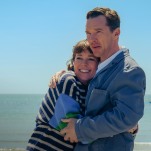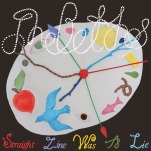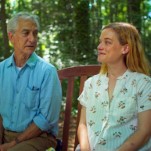How Maggie Gyllenhaal’s The Lost Daughter Captures the Unease of Ferrante’s Novel
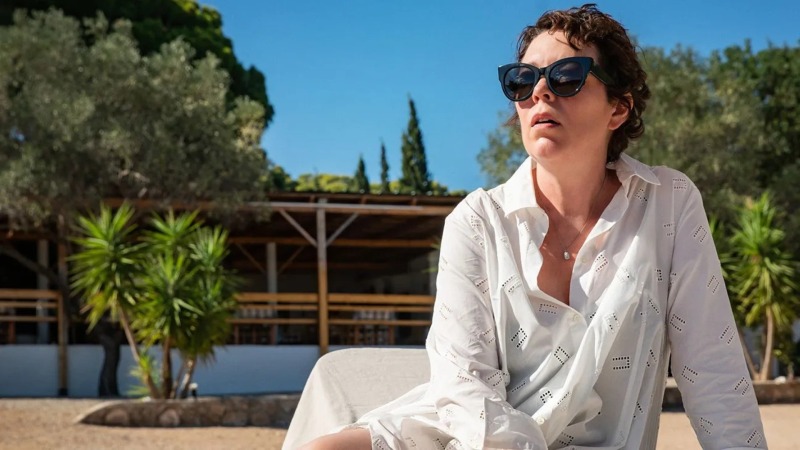
In The Lost Daughter by Elena Ferrante, originally published in 2006 and translated into English by Ann Goldstein in 2008, a 48-year-old woman steals a doll from a child. The woman, named Leda, is a college professor with two grown daughters who have gone to live with their father. Beyond the occasional phone call, Leda doesn’t have much contact with them, and she’s okay with that. She’s enjoying the freedom from her children with a beach vacation. But the slew of troubling memories that surface in her mind—and her hyperfixation on Nina, a young mother, and her daughter Elena, who she sees at the beach—suggest that she can’t quite put her years as a parent to rest.
Director Maggie Gyllenhaal’s 2021 adaptation of Ferrante’s novel doesn’t change much about the story. In the film, Leda (Olivia Colman) is British instead of Italian, the vacation takes place in a town in Greece instead of the coast of Italy, and Nina (Dakota Johnson) and Elena come from a family of New Yorkers. The cinematography conveys the eerie tone of the novel with a focus on the beautiful but strangely empty beach where the vacationers spend their days. Not much happens, but even the most mundane of moments feels significant. Gyllenhaal successfully evokes the uneasiness of the novel and the sense that there is something dark and hard to define beneath the surface of every interaction.
But what the film inevitably can’t do is replicate the intense inward narration of the book, which documents Leda’s spiraling thoughts as her observations of Nina and Elena bleed into memories of taking care of her own daughters when they were very young. Leda was not a happy mother; her daughters often irritated her to the point of anger, resulting in instances where she ended up, as she explains, going too far. One anecdote, which revolves around a doll from Leda’s childhood that she gifts to her eldest daughter Bianca, is particularly unnerving. At first excited to share an heirloom from her past, Leda is soon troubled by how little Bianca cares about the doll. The doll meets its end when Leda hurls it off the balcony, feeling what she describes as “a cruel joy.” All this is nested within Leda’s interactions with Elena’s doll, which she holds, dresses, and cares for as if it were a human child.
-

-

-

-

-

-

-

-

-

-

-

-

-

-

-

-

-

-

-

-

-

-

-

-

-

-

-

-

-

-

-

-

-

-

-

-

-

-

-

-























